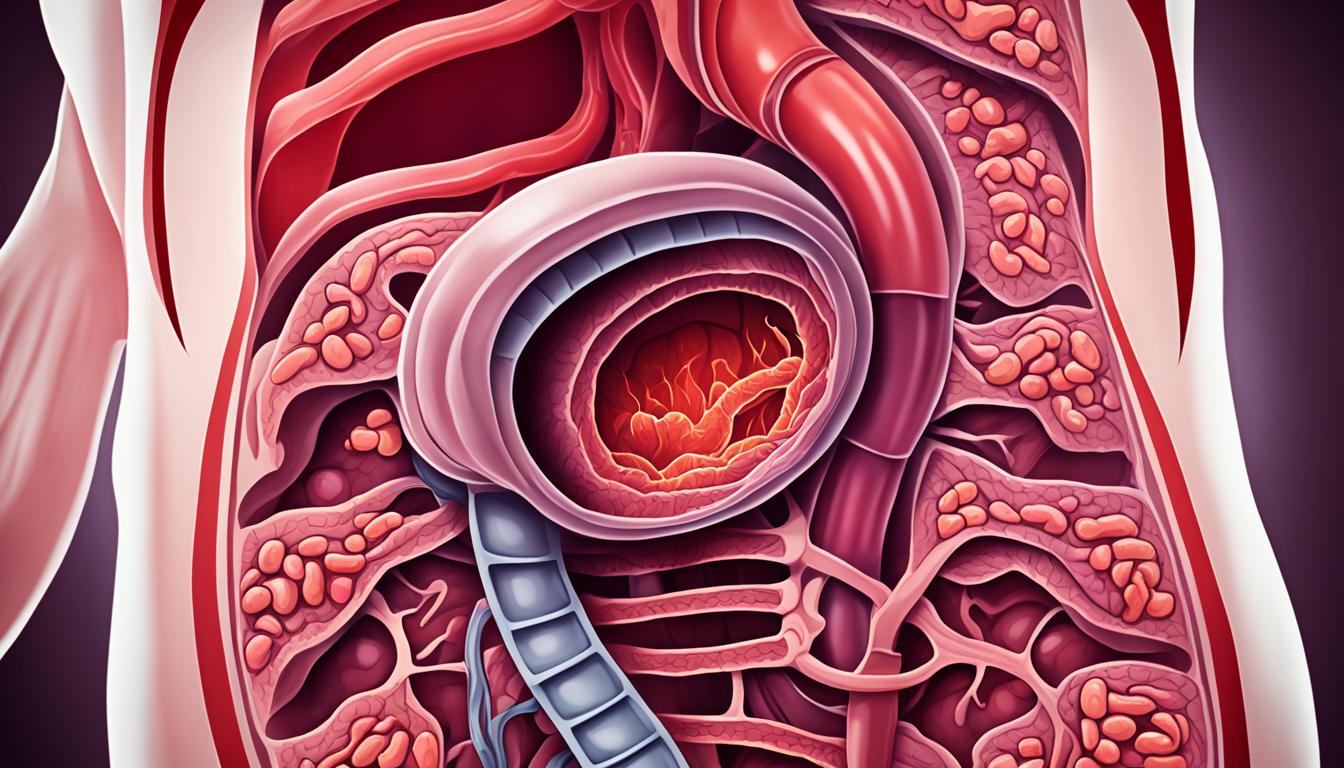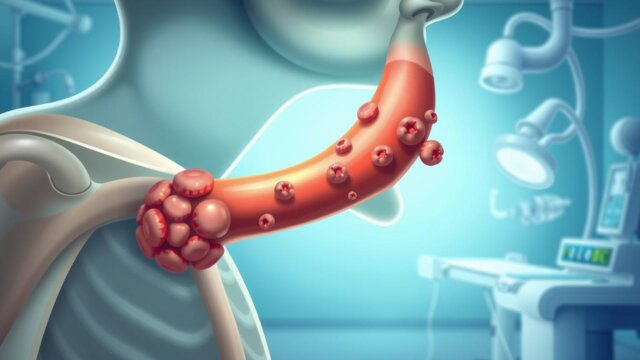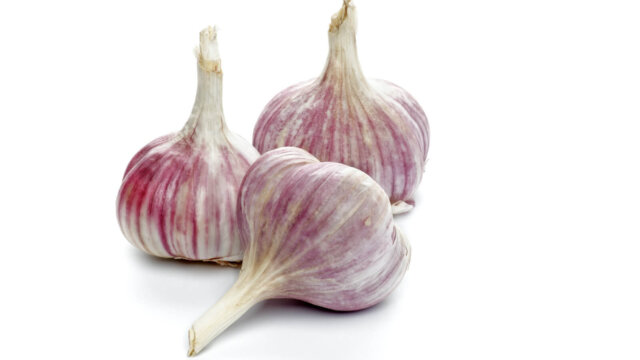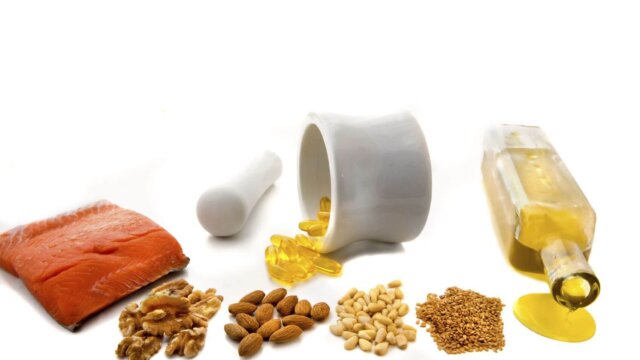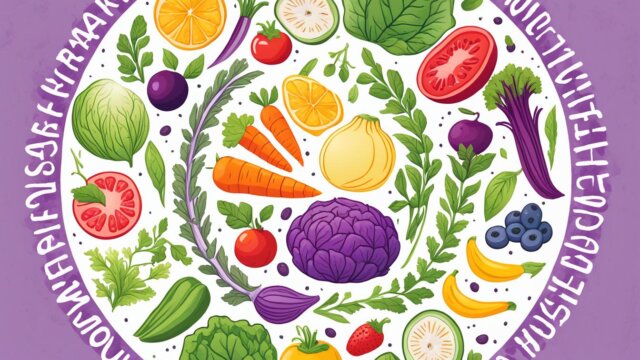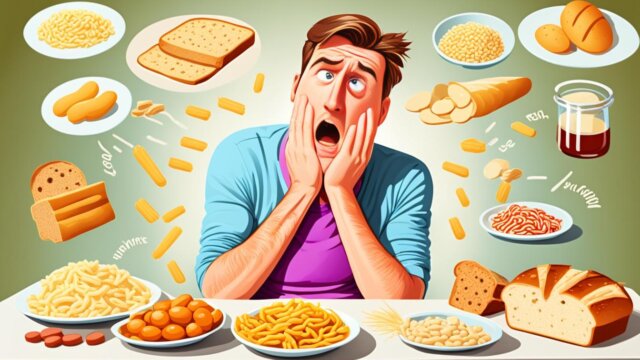FTC disclaimer: This post may contains affiliate links and we will be compensated if you click on a link and make a purchase.
About 8 in every 1,000 people in the U.S get gastritis. Up to half of people worldwide have chronic gastritis from H. pylori. This condition can start suddenly or slowly, affecting many people.
Gastritis can be acute or chronic, affecting the stomach lining. It’s divided into erosive and non-erosive types.
Older adults are more likely to get gastritis because their stomach lining gets thinner with age. Many things can cause it, like NSAIDs, alcohol, tobacco, cocaine, H. pylori infections, and more. About 1 in 10 people with H. pylori get gastritis or other stomach problems.
Key Takeaways
- Gastritis is a common condition that affects the stomach lining, with acute and chronic forms.
- Causes include bacterial infections, medications, lifestyle factors, and underlying medical conditions.
- Symptoms can vary, ranging from indigestion and abdominal pain to nausea, vomiting, and loss of appetite.
- Proper diagnosis and treatment, including dietary changes, are essential to manage gastritis and prevent complications.
- Consulting a healthcare provider is recommended for personalized care and recommendations.
What is Gastritis?
Definition and Types of Gastritis
Gastritis is when the stomach lining gets inflamed, irritated, or eroded. It can be acute or chronic, and it has erosive and nonerosive types. Erosive gastritis causes injuries or ulcers. Nonerosive gastritis causes irritation but no ulcers. Atrophic gastritis makes the stomach lining thinner over time.
Many things can cause gastritis, like drinking too much alcohol or smoking. Stress, using too much pain medicine, infections, surgery, injuries, autoimmune disorders, and some health conditions can also cause it. Symptoms include stomach pain, belching, hiccups, bleeding, nausea, feeling full, losing appetite, and seeing blood in vomit or stool.
To diagnose gastritis, doctors might use tests like upper GI series, endoscopy, blood tests, stool samples, and breath tests. Treatment often includes medicines to lower stomach acid, like antacids and proton pump inhibitors, especially if it’s from H. pylori bacteria.
Type of Gastritis | Description |
|---|---|
Erosive Gastritis | Involves injuries or ulcers in the stomach lining |
Nonerosive Gastritis | Characterized by stomach irritation without ulcers |
Atrophic Gastritis | A type of nonerosive gastritis where the stomach lining becomes thinner over time |
Chronic gastritis can lead to serious conditions. Erosive gastritis can cause ulcers. Atrophic gastritis raises the risk of stomach cancer if not treated. See a healthcare provider if symptoms get worse, new ones appear, or if there are signs of serious problems like bloody vomit or stools.
Causes of Gastritis
Bacterial Infections and Other Risk Factors
Gastritis can come from many things. A common cause is a Helicobacter pylori (H. pylori) infection. This bug affects most people with chronic gastritis. Taking NSAIDs for a long time can also cause gastritis.
Drinking too much alcohol, smoking, a lot of stress, and some autoimmune disorders can also lead to it. Sometimes, other bugs, viruses, or fungi can make you sick too.
A study showed that most people with gastritis had erosive or non-erosive types. If not treated, chronic gastritis can go on for years. It can cause anemia, vitamin shortages, bleeding, ulcers, and even stomach cancer.
To treat H. pylori, doctors often use antibiotics. Keeping clean, managing stress, avoiding certain foods, and drinking less alcohol can help prevent it.
Cause | Prevalence | Characteristics |
|---|---|---|
H. pylori Infection | Most common cause of gastritis | Chronic gastritis, increased risk of ulcers and cancer |
NSAID Use | Significant contributor to gastritis | Can lead to acute or chronic gastritis |
Alcohol Consumption | Strongly associated with gastritis | Excessive alcohol use can irritate the stomach lining |
Autoimmune Disorders | Less common but serious cause | Can target and damage the stomach lining |
“One study found that erosive gastritis was the most frequent diagnosis (16%) followed by non-erosive gastritis (14%) in 911 individuals who underwent diagnostic endoscopy for gastrointestinal symptoms.”
Risk Factors for Developing Gastritis
Gastritis is when the stomach lining gets inflamed. It can happen for many reasons. Using NSAIDs or corticosteroids for a long time is a big cause. Drinking too much alcohol and smoking also raises the risk. Some diseases like Crohn’s, celiac, and sarcoidosis can make it worse.
Getting older makes you more likely to get gastritis. Older people and those with weak immune systems are at higher risk. Not eating well, not moving much, and feeling stressed can also make it more likely.
Risk Factor | Impact on Gastritis |
|---|---|
NSAID Use | Increased risk of acute gastritis |
Alcohol Consumption | Increased risk of acute gastritis |
Smoking | Increased risk of acute gastritis |
Autoimmune Disorders | Increased risk of chronic gastritis |
Older Age | Increased susceptibility to developing gastritis |
Poor Diet | Increased risk of gastritis |
Lack of Physical Exercise | Increased risk of gastritis |
Elevated Stress Levels | Increased risk of gastritis |
Knowing these risk factors helps people take steps to prevent or manage gastritis. This can make their digestive health better.
Symptoms of Gastritis
Gastritis can cause many unpleasant symptoms. These include indigestion, a burning feeling in the stomach. You might also feel nausea and vomiting, bloating, stomach pain, hiccups, and appetite loss.
If gastritis causes a bleeding ulcer, you might vomit blood or see coffee ground-like material. You could also have black, tarry stools.
Many people with gastritis don’t show any symptoms. The type and severity of symptoms depend on the cause. This could be from Helicobacter pylori infection, NSAIDs, or an autoimmune condition.
Knowing the symptoms of gastritis is key. If you have ongoing or severe discomfort, see a doctor. Quick diagnosis and treatment can prevent serious problems and help manage the condition.
“Gastritis can be a frustrating and uncomfortable condition, but with the right approach, it can be effectively managed.”
Diagnosing Gastritis
Tests and Procedures for Diagnosis
Diagnosing gastritis starts with a detailed look at your health history and a physical check-up by a doctor. They might suggest tests like an upper GI series or barium swallow, upper endoscopy, blood tests, stool tests, and breath tests to check your condition.
An upper GI series, or barium swallow, looks for problems or inflammation in your upper digestive tract. An upper endoscopy lets your doctor see the inside of your esophagus, stomach, and the start of your small intestine (duodenum).
Blood tests can find signs of anemia or Helicobacter pylori (H. pylori) infection, a common cause of gastritis. Stool tests check for H. pylori, and breath tests measure carbon dioxide levels to see if you have an H. pylori infection.
These tests help your doctor figure out why you have gastritis and how much your stomach lining is affected. Knowing the cause helps them create a treatment plan to ease your symptoms.
“Proper diagnosis is key to effective treatment, as the underlying cause of gastritis can vary widely and require different approaches.”
Treatment Options for Gastritis
The treatment for gastritis depends on what caused it. For acute gastritis, stopping bad habits like smoking or taking NSAIDs can help. Sometimes, it gets better on its own.
For chronic gastritis, finding and treating the cause is key. This could be an H. pylori infection, an autoimmune disorder, or something else. Doctors might give you medicines to lower stomach acid or antibiotics for infections.
- Antibiotics kill H. pylori in your stomach and are taken for 7 to 14 days.
- Proton pump inhibitors reduce stomach acid and can increase the risk of bone fractures if taken for a long time.
- Acid blockers help by reducing stomach acid, which helps with pain and healing.
- Antacids help by neutralizing stomach acid right away, but they’re not the main treatment because of possible side effects.
Changing your lifestyle can also help with gastritis. Avoiding alcohol and using acetaminophen for pain can reduce irritation.
Doctors use tests like endoscopy and H. pylori tests to find the cause of gastritis. Seeing a healthcare provider can also lead to new treatment options.
Gastritis Treatment Approach | Description |
|---|---|
H. pylori Eradication | Doctors use antibiotics, a proton pump inhibitor, and sometimes bismuth subsalicylate to treat H. pylori gastritis. They test for H. pylori 4 weeks after treatment to check if it’s gone. |
NSAID-Induced Gastropathy | If NSAIDs cause gastropathy, stopping or reducing them may help. In some cases, surgery is needed for bile reflux gastropathy. |
Autoimmune Gastritis | This type may need iron, folic acid, and vitamin B12 supplements. In severe cases, B12 injections might be needed. |
Acute Erosive Gastropathy | Critically ill patients may need acid-reducing meds to prevent stomach problems. Treatment includes avoiding irritants and using medications. |
Other Causes | For other causes, treatment may involve specific medicines or dietary changes. |
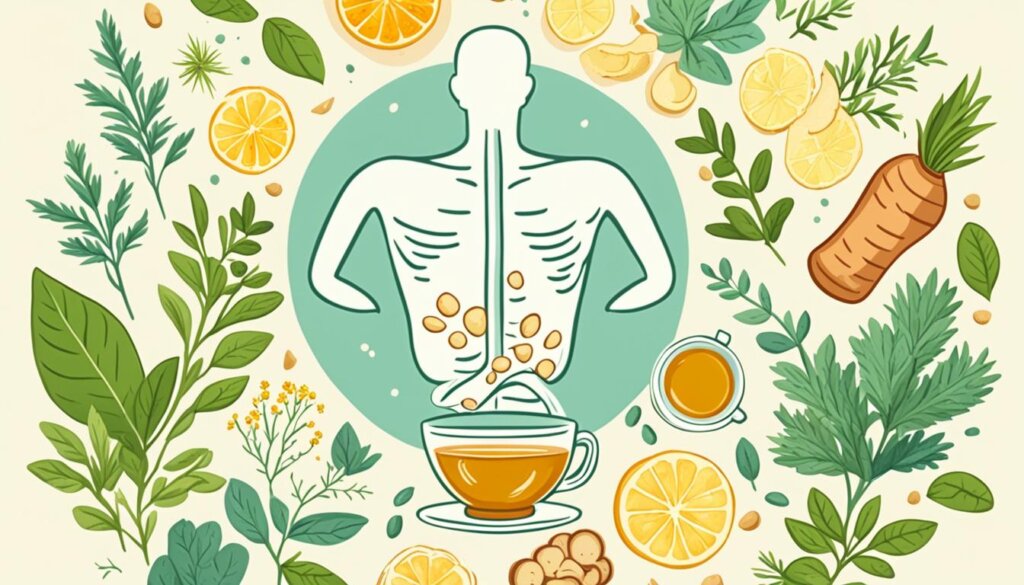
Medications for Treating Gastritis
Over-the-Counter and Prescription Drugs
Managing gastritis can be done with many medications. Over-the-counter antacids like Maalox, Mylanta, and Tums help by neutralizing stomach acid and easing pain. H2 blockers, such as Pepcid and Tagamet, cut down on stomach acid production. Proton pump inhibitors (PPIs), including Prilosec and Nexium, help by stopping acid secretion and helping the stomach heal.
For gastritis caused by a bacterial infection, like Helicobacter pylori, antibiotics are often given. If you feel nauseous or vomit, over-the-counter or prescription anti-nausea drugs can help. If the gastritis is autoimmune-related, your doctor might suggest vitamins B12, folic acid, or iron to fix any nutritional gaps.
Medication Type | Examples | Mechanism of Action |
|---|---|---|
Antacids | Maalox, Mylanta, Tums | Neutralize stomach acid |
H2 Blockers | Pepcid, Tagamet | Reduce acid production |
Proton Pump Inhibitors (PPIs) | Prilosec, Nexium | Suppress acid secretion and promote healing |
Antibiotics | Clarithromycin, Metronidazole | Treat Helicobacter pylori infection |
Anti-nausea Medications | Various over-the-counter and prescription drugs | Provide symptomatic relief for nausea and vomiting |
Supplements | Vitamins B12, Folic Acid, Iron | Address nutritional deficiencies in autoimmune-related gastritis |
Knowing about the different medications for gastritis helps people work with their doctors to find the right treatment plan.
Home Remedies for Gastritis Relief
Home remedies can ease gastritis symptoms, along with medicines. Drinking ginger tea or chamomile tea with honey can soothe your stomach. Probiotics might also help if you have H. pylori infections. Eating less spicy, fried, and acidic foods can also help.
Eating broccoli sprouts and fresh blueberries can fight gastritis. Garlic can also be good for you, lowering the risk of some cancers. Essential oils like lemongrass and lemon verbena might stop H. pylori from growing.
Stay away from processed and preserved foods, foods with a lot of gluten, dairy, and sweets. Quitting smoking and drinking, and using less pain medicine can also help. If your symptoms don’t get better or get worse, see a doctor.
Using these home remedies and changing your diet can ease gastritis pain and prevent worse problems.

“Incorporating ginger, chamomile, and probiotics into your routine can provide natural relief for gastritis symptoms.”
Gastritis Diet
If you have gastritis, what you eat is key to feeling better and healing. You should eat foods that are gentle on your stomach. Avoid foods that can make inflammation or irritation worse.
Foods to Eat for Gastritis Relief
- High-fiber foods like whole grains, fruits, vegetables, and beans can help reduce gastritis symptoms.
- Low-fat options such as fish, lean meats, and vegetables are also recommended.
- Low-acidity foods, including many vegetables and beans, can be beneficial.
- Probiotic-rich foods and drinks, like yogurt and kefir, may also aid in managing gastritis.
Foods to Avoid with Gastritis
Some foods can make gastritis worse. These include spicy, fried, and acidic foods, as well as alcohol and caffeine. If your stomach lining is damaged, it can make it hard to digest and absorb nutrients.
It’s best to limit alcohol, coffee, carbonated drinks, spicy and acidic foods, and fried or high-fat foods. Eating smaller meals and waiting 3 hours between them can help. Avoiding lying down after eating is also good. And try to eat fewer ultra-processed foods.
Gastritis can cause nausea, vomiting, and stomach pain. Too much sodium can make these symptoms worse. But unsaturated fats can help reduce inflammation and lower the risk of heart disease.
Probiotics can also help with inflammation and pain in the stomach and intestines for those with gastritis. Foods like low-fat Greek yogurt, tempeh, kefir, and cottage cheese are good sources of probiotics.
By choosing foods that are easy on your stomach, you can help manage your gastritis and feel better.
Gastritis and Peptic Ulcers
Gastritis is when the stomach lining gets inflamed. This can make peptic ulcers more likely. These are painful sores in the stomach or small intestine. If not treated, gastritis can turn into ulcers, causing bleeding, scarring, and blockage. It’s important to treat the cause, like a bacterial infection or too much NSAID use, to stop ulcers.
Gastritis and peptic ulcers often have the same causes. Most stomach ulcers come from a Helicobacter pylori (H. pylori) infection. Using too much aspirin, ibuprofen, and other anti-inflammatory drugs also causes them.
Up to half of people worldwide have H. pylori infection. Rare but serious problems from stomach ulcers include anemia and shock from blood loss. Perforated ulcers can cause severe infections and sepsis. Other causes include infections, Zollinger-Ellison syndrome, and stress.
Smoking, drinking, and eating spicy or acidic foods can make ulcers worse. But they don’t cause stomach ulcers. Eating well, managing stress, and not using NSAIDs too much can help prevent them.
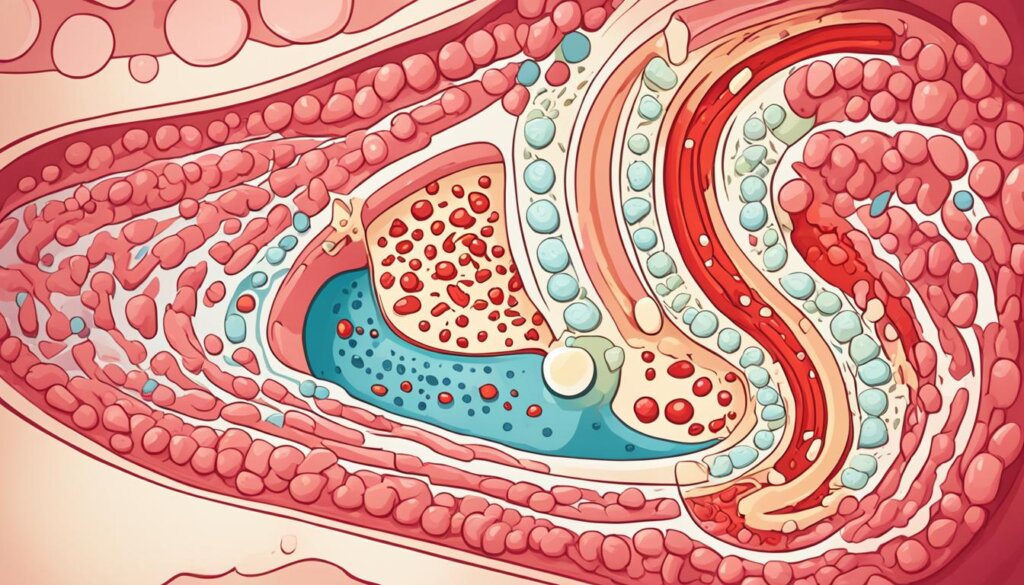
Complications of Gastritis
Gastritis can be managed with treatment, but ignoring it can lead to serious issues. Many people with gastritis don’t show symptoms. This means they might not get treated, leading to worse problems. These problems include peptic ulcers, blockages, perforations, anemia, and a higher chance of stomach cancer.
Peptic ulcers are a big worry with gastritis. Helicobacter pylori often causes both gastritis and stomach ulcers. This bacteria makes the stomach lining inflamed and damaged. If gastritis isn’t treated, it can turn into ulcers. These can cause bleeding, perforation, or block the digestive tract.
Gastritis can make it hard for the body to get nutrients like iron and vitamin B12. H. pylori and autoimmune gastritis make it tough to absorb these nutrients. This can lead to anemia and other shortages. In bad cases, it can turn into atrophic gastritis, making digestion harder.
Not treating gastritis raises the risk of stomach cancer. Long-term inflammation can lead to stomach cancer, like adenocarcinoma and MALT lymphoma. It’s important to watch for this and get treatment to avoid these dangers.
Ignoring or chronic gastritis can lead to serious issues, like ulcers, nutrient problems, and a higher stomach cancer risk. Getting medical help quickly and treating the cause can lower these risks. This helps keep your stomach healthy.
Prevention of Gastritis
Washing your hands often can lower the chance of getting H. pylori infections. These infections often cause chronic gastritis. Also, not smoking, drinking too much alcohol, or using NSAIDs too much can help prevent gastritis.
Stress can make gastritis worse. So, relaxing with meditation or yoga can help. PPIs and H2 blockers can also help by making less stomach acid. Antacids can help by balancing out stomach acid.
Doctors use tests like stool samples, endoscopies, and blood tests to find stomach bacteria and inflammation. They also use CBC tests, x-rays, and breath tests for H. pylori.
If you have gastritis, you can try eating less, drinking less alcohol, and managing stress. Avoid foods that upset your stomach. For serious cases, there are treatments like Enterra Therapy and Radiofrequency Ablation.
By keeping good hygiene, avoiding smoking and alcohol, limiting NSAID use, and managing stress, you can stop gastritis before it starts.
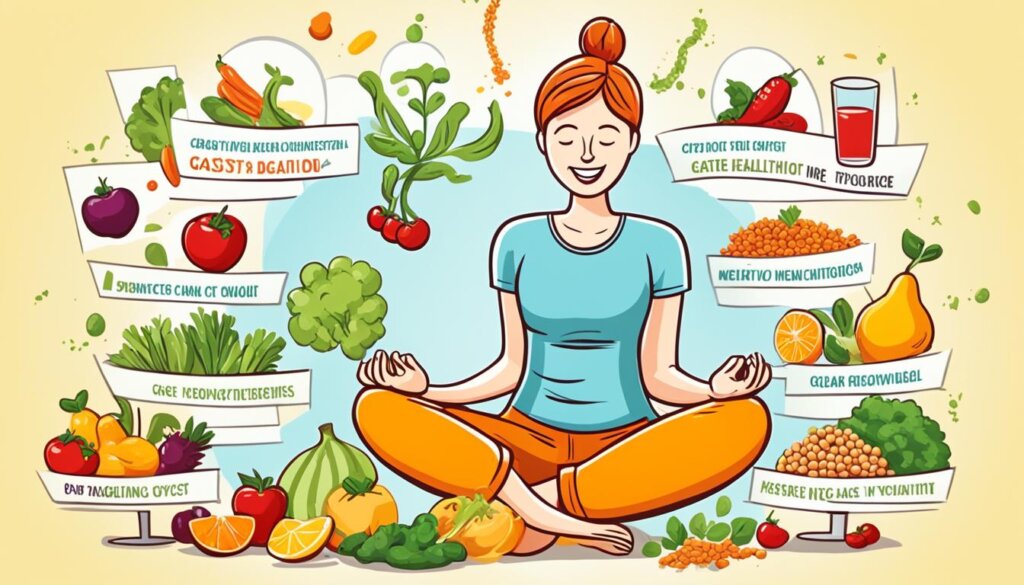
“Preventing gastritis is crucial for maintaining a healthy digestive system and avoiding the discomfort and potential complications associated with this condition.”
Conclusion
Gastritis is a complex condition with many causes, like bacterial infections, autoimmune disorders, and lifestyle choices. It’s important to know how to treat and manage it to keep your digestive health good. Working with your healthcare provider helps find the cause and create a treatment plan. This plan might include medicines, changes in diet, and changes in lifestyle.
The key takeaways about gastritis are that it affects about half of the world’s people and gets more common as people get older. While some cases of gastritis get better by themselves, others need help to stop serious problems. This includes a higher chance of getting stomach cancer.
By focusing on gastritis treatment and prevention, you can help keep your digestive health good. Fixing the causes of gastritis, through medicines, diet changes, or lifestyle changes, helps manage symptoms. With a full approach, you can have a healthy stomach and a better life.
FAQ
What is gastritis?
Gastritis is when the stomach lining gets inflamed, irritated, or eroded. It can be short-term or long-term. It also comes in different types.
What are the causes of gastritis?
Many things can cause gastritis. These include infections like H. pylori, using NSAIDs for a long time, drinking too much alcohol, smoking, and stress. Other causes include bile reflux, autoimmune disorders, and some inflammatory conditions.
What are the risk factors for developing gastritis?
Older people and those who use NSAIDs for a long time are at higher risk. Drinking too much alcohol, smoking, and having certain autoimmune disorders also increase the risk.
What are the common symptoms of gastritis?
Symptoms include indigestion, a burning feeling in the stomach, nausea, and vomiting. You might also feel bloated, have stomach pain, hiccups, or lose your appetite. In severe cases, you might see blood in your stool or vomit blood.
How is gastritis diagnosed?
Doctors will look at your medical history and check you over. They might do tests like an upper GI series, endoscopy, blood tests, or a fecal occult blood test. A breath test for H. pylori might also be done.
How is gastritis treated?
Treatment varies based on the cause. For mild cases, stopping behaviors that cause it might help. For more serious cases, medicines to reduce stomach acid or treat infections may be needed.
What medications are used to treat gastritis?
Doctors might prescribe antacids, H2 blockers, proton pump inhibitors, or antibiotics for bacterial infections. Anti-nausea drugs and supplements could also be given.
What home remedies can help with gastritis?
Drinking ginger or chamomile tea with honey can help. Eating foods high in probiotics is good too. Avoiding spicy, fried, and acidic foods is also important. Changing your diet and managing stress can also help.
How does diet affect gastritis?
Eating foods that are high in fiber, low in fat, and not too acidic can help. Avoid spicy, fried, and acidic foods, as well as alcohol and caffeine.
Can gastritis lead to other health problems?
Yes, if not treated, it can lead to more serious issues. These include peptic ulcers, bleeding, anemia, atrophic gastritis, and stomach cancer.
How can gastritis be prevented?
Good hygiene, avoiding tobacco, alcohol, and NSAIDs, and managing stress can prevent gastritis.
